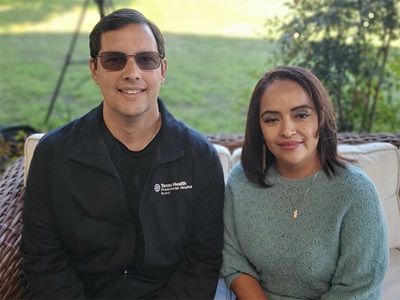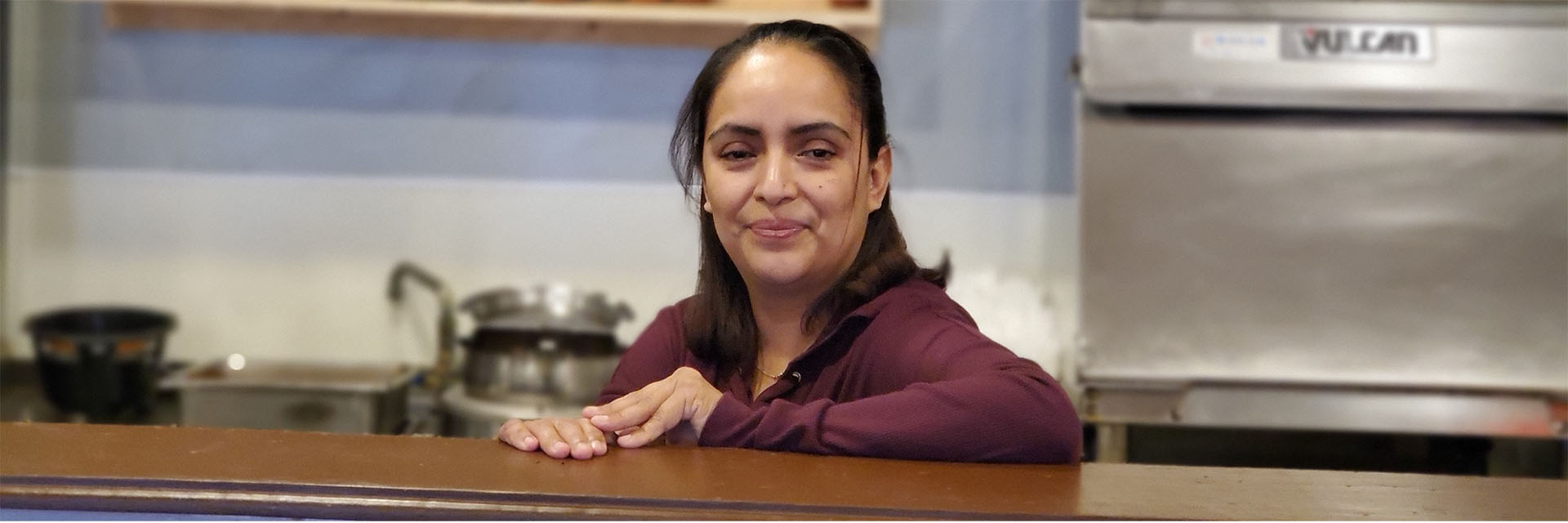Forty-two-year-old Maria Esquivel nearly died at work. She collapsed on a table with chest pain that surgeons at Texas Health Presbyterian Hospital Plano were able to correct with teamwork and quick thinking.
“It felt like an elephant was resting on my chest,” Esquivel said. “I remember walking to the restroom to splash water on my face, and I blacked out.”
Her manager saw her face turning pale as she struggled to breathe.
Immediately, he called 911.
Esquivel, going in and out of consciousness in the ambulance, arrived at Texas Health Plano minutes later. She was having a heart attack — an ST-elevation myocardial infarction (STEMI), to be exact. A major blockage in Esquivel’s left artery was cutting off blood flow and oxygen to the heart muscle.
When unblocking the artery, Mark Peterman, M.D., an interventional cardiologist on the Texas Health Plano medical staff, noticed something else. The left artery was abnormal, making the procedure even more challenging. Because of its irregular form, it was difficult to access and place the stent inside Esquivel’s coronary artery, which was necessary to help restore blood flow to her heart.
During the procedure, Esquivel stopped breathing. She suffered ventricular fibrillation, which is an irregular heart rhythm that causes cardiac arrest.
“The situation was dire,” Peterman said. “We performed CPR for more than an hour.”
To protect Esquivel’s deteriorating lungs and brain function, Peterman and other doctors on the medical staff determined that a mechanical heart pump — one of the world’s smallest — would help improve her heart function and save her life.
Esquivel spent five days in the ICU on a ventilator before she could finally breathe on her own.

After spending close to two weeks at Texas Health Plano, Esquivel was released to continue her recovery at home.
“Mrs. Esquivel has a stent in her left main coronary artery to maintain blood flow to the heart, and she’s feeling and doing much better,” Peterman said.
He suspects a tear in the artery triggered the 42-year-old’s heart attack, but despite this rare cause, Esquivel’s life-threatening event is one we all can learn from.
Since her heart attack, Esquivel made a few changes, and encourages others to do the same.
“Take care of yourself, talk to your doctor and find a good hospital that will explain things to you,” she said. “I found that at Texas Health Plano.”
 According to the American Heart Association, each year one in three women will die of heart disease. Learn how Texas Health and Go Red for Women® are working together to fight heart disease in women and how you can find out your risks and make your heart health a priority today.
According to the American Heart Association, each year one in three women will die of heart disease. Learn how Texas Health and Go Red for Women® are working together to fight heart disease in women and how you can find out your risks and make your heart health a priority today.

